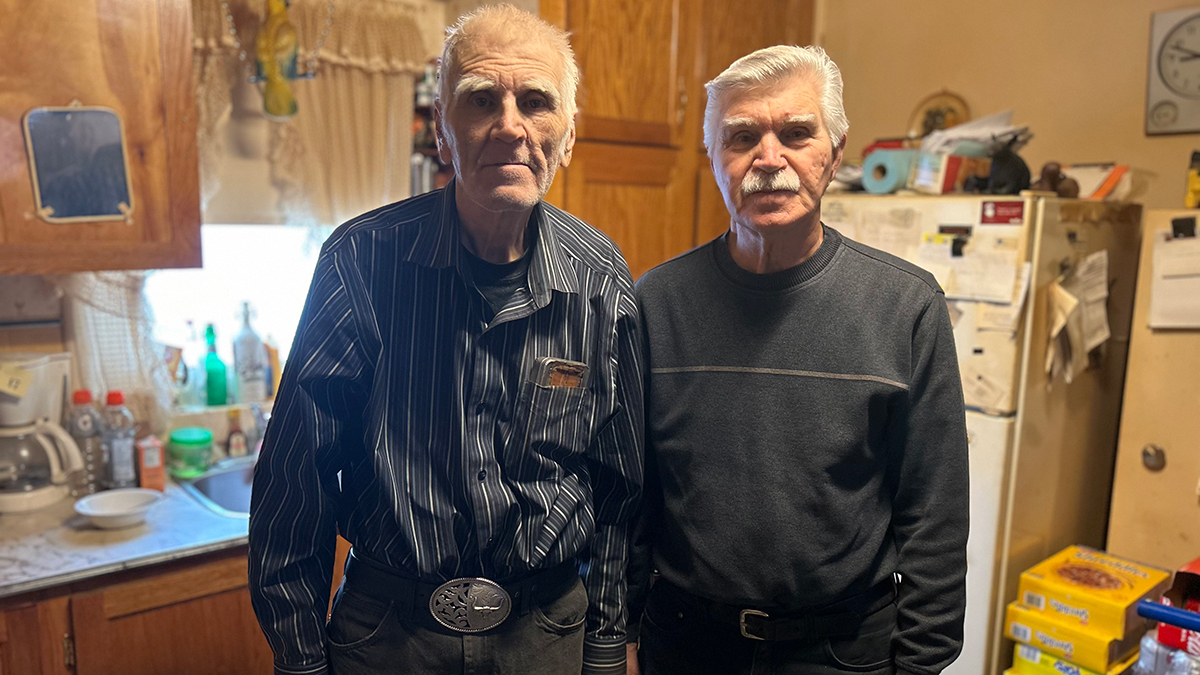For several months, 81-year-old Gerald Louis Seize has made the grueling trek from Windsor to Ottawa several times each month to help his 79 year old brother Romeo solve a persistent problem, one many Canadians would not face.
Romeo is illiterate, limiting his ability to pay his phone bill online. He tried but wasn’t able to get Bell Canada to send him paper bills, which he can pay at his bank. Instead, he has received electronic bills, which he couldn’t pay.
This past August, Bell shut off Romeo’s services because of unpaid bills. When Gerald could not reach his brother he became worried and called a friend of Romeo, who told him Romeo was fine but had lost his phone service. Gerald immediately set off from Windsor to try and help. But Gerald says the process of trying to get paper bills for his brother has been long and frustrating.
On one visit, Gerald says he spent four hours on a call with Bell’s customer service.
“I told them he cannot read and cannot write, and the guy said, ‘But he’s got a computer.’ I repeated he cannot read and he cannot write, how is he going to run a computer?” Gerald told Capital Current.
“The next thing they asked was whether he has an email! I replied he cannot read and cannot write. What is difficult to understand?”
To restore his services, Romeo had to pay hundreds of dollars.
“It is a big bill to pay all at once,” said Gerald. “He is on a pension.”
According to Gerald, no paper bill was sent to Romeo from August to December.
There has been some resolution to Romeo’s crisis. A Bell customer service representative told Capital Current on Jan. 19 that Romeo will now be receiving paper bills and apologized for the inconvenience.
Romeo lives alone in the family home in Ottawa’s Heron Park neighborhood. He was born in Ottawa but did not go to school and worked as a handyman.
When he upgraded satellite and telephone service last spring, Romeo requested that he be sent paper bills so he can pay them monthly at the bank, which he does with other bills with the help of a bank representative.
Romeo’s friend Warren Dearman, too, has called Bell several times to support his friend and save his brother Gerald a trip. Dearman said after one two-hour call, a Bell representative to agree to send paper bills, but Dearman said nothing changed.
“I do not grasp how it is inflexible. I myself receive paper bills,” said Dearman. “It seems they do not believe us when we tell them he cannot read and write.”
Dearman said he feels the billing system is not set up for someone like Romeo.
Ken Roy who is the general manager of Connected Canadians, echoed this idea.
“It is a systemic issue,” said Roy. “It is not that the people that I was talking to did not want to help. They just have rules in place to protect people’s accounts.”
Connected Canadians is a non-profit that advocates for seniors and provides digital literacy training and support. It was founded in 2018 in Ottawa.
In one case, Roy said he was helping a 91-year-old Nigerian woman who immigrated about 30 years ago. She had advanced dementia and had limited understanding of technology but she had wireless service from Freedom Mobile, because she uses WhatsApp to communicate with her family.
One day her WhatsApp was hacked and she did not know what to do. She started making phone calls using her regular cellphone, accumulating a $400 bill that she did not think of or even could afford.
When Roy tried the help the woman pay her bill, Freedom Mobile customer service asked for her four-digit PIN that she had created the account with. She did not remember the PIN, nor the email address she used. The Freedom Mobile agents refused to talk to anyone without providing the required information.
The bill has continued to rise.
Capital Current contacted Freedom Mobile who confirmed the only way for those who are not able to retrieve their PIN code or answer security questions is to go to the store to pay their bills and update their information. There is no special service or other options for people who cannot write or read.
“Those rules are not designed with marginalized communities in mind. They are not designed for older adults who cannot read, cannot write, cannot use devices, and do not know how to use the internet,” said Roy.
“The lack of some kind of protocol for these types of situations is alarming.”
Roy said there could be a separate protocol such as a separate type of identification process, and extra steps to support illiterate adults and seniors when they need special assistance with their account.
Although there has been a steady rise in literacy rates over the past 50 years, there are about 773 million illiterate adults worldwide, according to UNESCO.
According to ABC Life Literacy Canada, a national charitable organization that supports and raises awareness about adult literacy, 48 per cent of adult Canadians have literacy skills that fall below a high school level and 17 per cent are at the lowest level, at which point people may not be able to read the instructions on a medicine bottle.
According to data from the Commission for Complaints of Telecom-Television Services (CCTS), complaints about billing issues for wireless services rose six per cent in between 2022 and 2023, and 14 per cent compare to between 2020 and 2021.
CCTS told the Capital Current that customers, such as Gerald and Romeo, should first try to resolve their issue with their service provider. Customers should also keep a record of their communications with service providers so that there is clear documentation of steps taken if a complaint submission is required.




